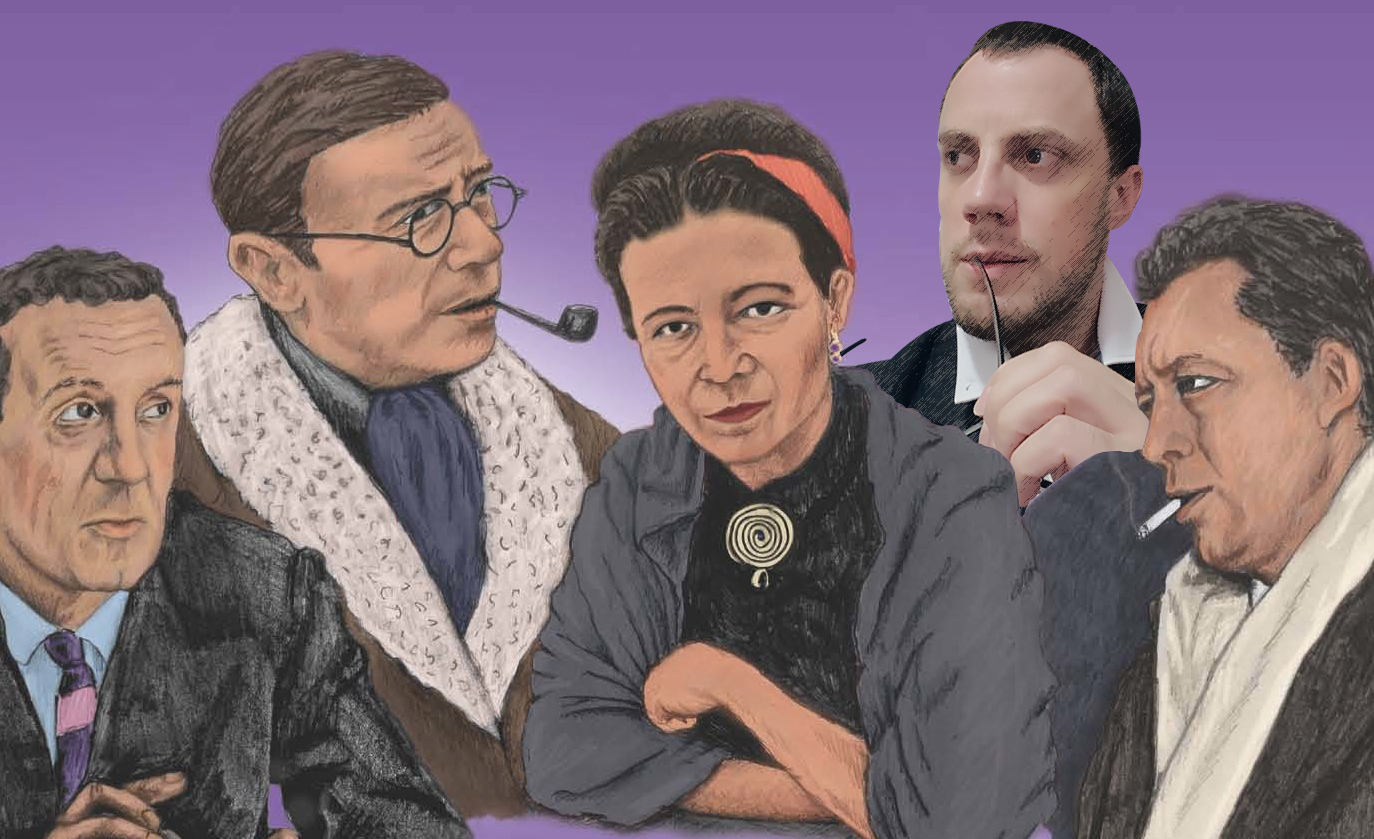
Banner image downloaded from wallpaperswide.com

Existentialism
Ancient Greece
Stoicism
Medieval
Modern
In this series, I am going to be discussing Derrida's early thought by focusing on three of his works from the 60s: his book Of Grammatology; his collection of essays Writing and Difference; and the essay Differance. Although I am not particularly sympathetic to postmodernism and not interested in critical theory at all, I found Derrida to be quite different from what I expected. After taking the time to read him, my thoughts about Derrida can be summarised thus: people who don't like Derrida, in general, haven't read him.
In my second Merleau-Ponty series, we tackle the unfinished book he was working on when he died, The Visible and the Invisible. In this book, MP moves away from his phenomenological beginnings into ontology, and although we only get 160-odd pages, there is enough to at least get the gist of the project MP had in mind.
Although Deleuze's later works haven't attracted me much, his doctoral thesis Difference and Repetition is a work of pure genius. In this book, adopting a Bergsonian foundation and a Nietzschean tone, Deleuze draws on a wide range of ideas from earlier philosophers, weaving them together into a unique metaphysical inquiry that, while not an easy read, sheds considerable light on a subject that is notoriously difficult to shed light on.
It's finally time to follow through on my promise to cover more Japanese philosophers. To that end, this series looks at Watsuji Tetsuro's Rinrigaku, or Ethics. Watsuji (1889-1960) was remarkably well-read in Western philosophy and heavily influenced by Heidegger in particular. Rinrigaku basically extends Heidegger's Being and Time by including space and community, ending up with a robust notion of ethics.
After having gone through the writings of the most famous 'students' of the founder of phenomenology, I finally come to the master himself, Edmund Husserl. This series addresses the book in which Husserl outlines his phenomenological approach to philosophy, Ideas 1.
Somehow, in between the Levinas videos I managed to find time to slip in a cheeky 4-video series on Graham Harman's philosophy object-oriented ontology. In this series, I just break down the ideas he outlines in his short book Object-Oriented Ontology, and finish with a video going through my thoughts and conclusions.
Emmanuel Levinas was a Jewish philosopher and contemporary of Jean-Paul Sartre. This video series addresses his most famous book, Totality and Infinity, in which he deals with the same issues as people like Heidegger and Sartre, but works through them in a very unique and interesting fashion, centring his philosophy on our relationship with the transcendent Other.
I've started a new playlist on YouTube where I will be featuring a handful of Japanese philosophers. I'm coming at this from a phenomenological/existentialist angle, so the philosophers I will be targeting will be those who have contributed to these fields. At the moment, I anticipate videos forthcoming on Yuasa Yasuo, Watsuji Tetsuo, Ichikawa Hiroshi, and Nagatomo Shigenori.
Completely overlooked by modern philosophy (to its own detriment), French philosopher Henri Bergson was a profound thinker whom Sartre credited as first drawing him to philosophy, and whose thought completely pervades Merleau-Ponty's philosophy. This video series outlines the core ideas of Bergson's thought as presented in his three most significant works, Time and Freewill, Matter and Memory, and Creative Evolution.
This video series takes us through Merleau-Ponty's masterpiece, Phenomenology of Perception. You would be hard pressed to find a more compelling account of human existence, although it's buried in a text so hard to read it has earned itself an Absurd Being video. Verdict: Challenging, but a must-read for anyone interested in life as it is lived.
With this latest video series we go back to the father of existentialism himself, the Danish philosopher, Soren Kierkegaard. Rather than focusing on a single text (basically because he has no single magnum opus), I have tried to capture the key elements of Kierkegaard's whole philosophy as he espouses it through his pseudononymous works.
In this category I will be posting one-off discussions of books that I felt warranted a video but aren't necessarily connected with a particular philosopher. Essentially, it's my 'slush' playlist where I will slot videos that don't need a separate, dedicated playlist.
The Heidegger videos continue. This new series looks at Heidegger's philosophy after Being and Time, where he turns his attention to Being itself and what he will eventually call the appropriated clearing. These videos will cover selected books, articles, and lectures that Heidegger produced from 1929 until his death almost five decades later.
Nietzsche is about as controversial a character as you'll find in philosophy but no survey of existentialism would be complete without some discussion of him. Although nowhere near as tough to read as Sartre or Heidegger, I have broken down his personal favourite (I believe), Thus Spoke Zarathustra, in my latest YouTube series.
If Being and Nothingness is the gold-standard in Existentialism, Heidegger's Being and Time is... well, whatever is better than gold. Much of Sartre was a continuation of themes Heidegger outlined in his master treatise. In another 12-part video series, I have broken down Being and Time and extracted all the philosophical goodness from within.
Being and Nothingness is one of the definitive texts of Existentialism. Unfortunately, it's also something of a cross between reading the dictionary and an instruction manual in Chinese in difficulty. This 12-part video series I made goes through Being and Nothingness systematically, chapter by chapter and either makes Sartre more accessible or just adds another layer of confusion. I can't decide which.